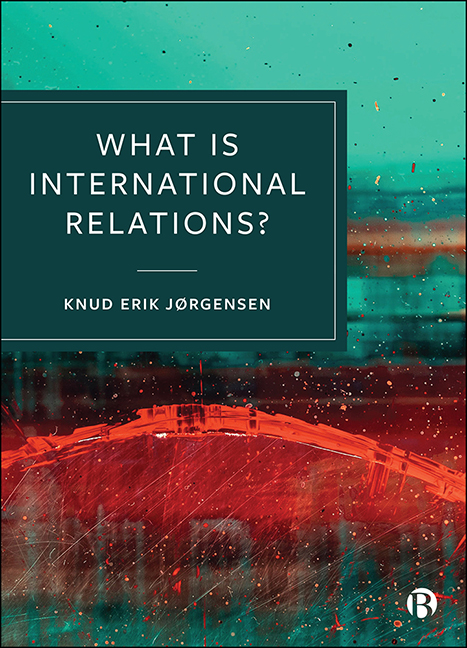Book contents
- Frontmatter
- Contents
- List of Figures, Tables and Box
- List of Abbreviations
- Preface
- Introduction
- 1 What is the Subject Matter?
- 2 What are the Human Sciences?
- 3 What is a Discipline?
- 4 What is Theory?
- 5 What is Disciplinary Diversity?
- 6 What is Community?
- 7 Globalizing International Relations?
- Conclusion
- Notes
- References
- Index
2 - What are the Human Sciences?
Published online by Cambridge University Press: 13 May 2022
- Frontmatter
- Contents
- List of Figures, Tables and Box
- List of Abbreviations
- Preface
- Introduction
- 1 What is the Subject Matter?
- 2 What are the Human Sciences?
- 3 What is a Discipline?
- 4 What is Theory?
- 5 What is Disciplinary Diversity?
- 6 What is Community?
- 7 Globalizing International Relations?
- Conclusion
- Notes
- References
- Index
Summary
Introduction
The contrast could not be starker between arguing, on the one hand, that IR is ‘an American social science’ (Hoffmann, 1977; see also Grosser, 1956), thus reducing IR to no more than a distinct social science in America, and, on the other hand, that IR is a ‘craft discipline’ (Jackson, 2000) or, according to Michael Donelan (1978), that ‘the data of the human sciences are the product of thought. The study of international relations is the study of international thought’ (p. 11). Subsequent contributions demonstrate that the issue remains high on the discipline's agenda (Alker, 1996; Brown, 2014; Neumann, 2014; D’Aoust, 2017).
In this chapter, I argue that IR has always straddled or at least been at the boundary between the social sciences (e.g. Law, Sociology, Economics, Political Science) and the humanities (e.g. History, Anthropology, Literary Studies, Philosophy). Hence the chapter intervenes in debates about the inherent tension between the proponents of too little/too much (social) science and too much/too little humanities. Each position on the spectrum comes with important ideas about specified kinds of subject matter (see Chapter 1), as well as preferred theories and methodologies. This chapter spells out the ramifications of taking distinct positions and proposes that it is time to leave either/or options behind and instead acknowledge the human sciences as IR's heterogeneous home, that is, the wider camp spanning the social sciences and the humanities (see Figure 2.1). Whereas the ‘social’ and the ‘human’ aspects of the disciplines seem to get along or even be synonymous, the ‘science’ part invites trouble not least because postmodern and poststructuralist scholarship has spent the last 50 years admonishing ‘science’. In other words, we are here at a crossroad and only some will decide to take the road chosen in this book, that is, opt for IR as a human science and using, for instance, Peter Winch as a tour guide (Winch, 1958/1990; Hutchinson et al, 2016).
In professional practices, IR has always been a highly diverse and pluralist undertaking (see also Chapter 5), and processes of professional identity formation can draw on the differences between and the similarities shared by the social sciences and the humanities. However, straddling can be an uncomfortable position, and some also feel that it does not qualify as a comfortable home.
- Type
- Chapter
- Information
- What Is International Relations? , pp. 30 - 44Publisher: Bristol University PressPrint publication year: 2021



